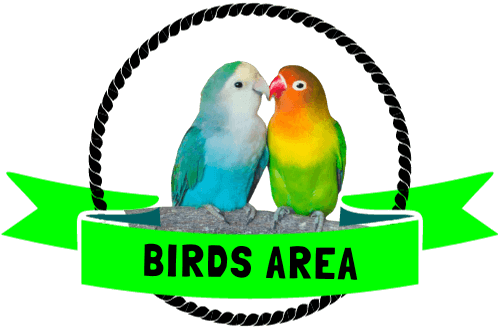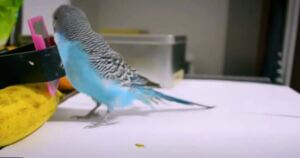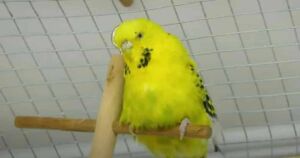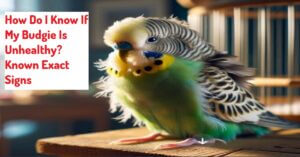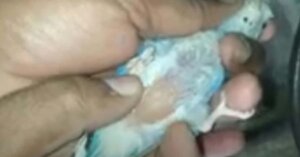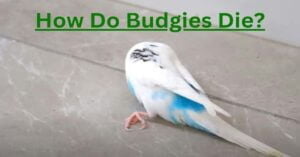Do Budgies Get Fleas? Know The Truth
Budgies can get fleas, but it’s very rare. They are more likely to suffer from mites.
Budgies, or parakeets, are small, colourful birds that make popular pets. These charming birds are generally healthy but can sometimes face issues with parasites. Fleas are uncommon in budgies, as they typically infest mammals. Instead, budgies are more prone to mites, which can cause discomfort and health problems.
Mites can affect a budgie’s skin, feathers, and overall well-being. Regular cleaning of their cage and proper care can prevent infestations. Monitoring your budgie for signs of itching or feather loss helps catch problems early.
Consulting a vet ensures your budgie receives the best care and treatment if needed. Keeping your budgie healthy and parasite-free ensures a happy, vibrant pet.
Do Budgies Get Fleas?
Budgies can get fleas, but it is rare. Fleas prefer furry animals. Yet, budgies can still be affected. The main source of fleas for budgies is other pets. If you have a cat or dog with fleas, your budgie might get them. Fleas can jump from one pet to another. They can also hide in carpets and bedding.
Symptoms Of Fleas In Budgies
Spotting fleas on a budgie can be tricky. Their feathers can hide these tiny pests. Yet, there are symptoms to watch for:
- Excessive scratching
- Red, irritated skin
- Feather loss
- Restlessness and distress
- Visible fleas or flea dirt
Check your budgie regularly for these signs. Early detection can make treatment easier. If you notice any symptoms, consult a vet immediately. They can provide the best advice for your feathered friend.
What Other Parasites Can Budgies Get?
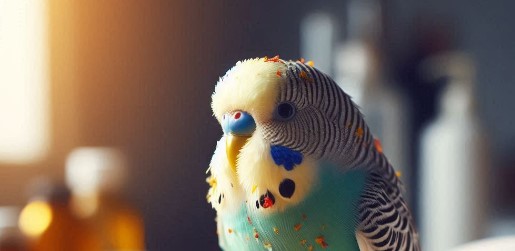
Budgies, like many pets, can suffer from various parasites. While fleas are uncommon in budgies, they can still encounter other pests. Some of the most common parasites include mites and lice. Understanding these parasites helps keep your budgie healthy.
1. Mites In Budgies
Mites are tiny creatures that can cause significant discomfort. They often burrow into a budgie’s skin, leading to itching and irritation. Red mites and scaly-face mites are the most common types affecting budgies.
- Red mites: These mites feed on blood and are active at night.
- Scaly face mites: These mites cause crusty lesions on the beak and legs.
Signs of mites include constant itching, scaly skin, and feather loss. Regularly checking your budgie and its cage can help spot these pests early. Treatment involves specific mite medications and cleaning the cage thoroughly.
2. Lice In Budgies
Lice are another type of parasite that can affect budgies. They live on the bird’s feathers and skin, feeding on its blood. The two main types of lice found in budgies are feather lice and shaft lice.
- Feather lice: These lice eat feathers and cause irritation.
- Shaft lice: These lice hide in the feather shafts, making them hard to see.
Signs of lice include excessive preening, damaged feathers, and visible lice or eggs. Treating lice involves using bird-safe lice treatments and keeping the cage clean. Ensuring your budgie’s environment is hygienic helps prevent lice infestations.
Ways Of Preventing Parasites In Budgies
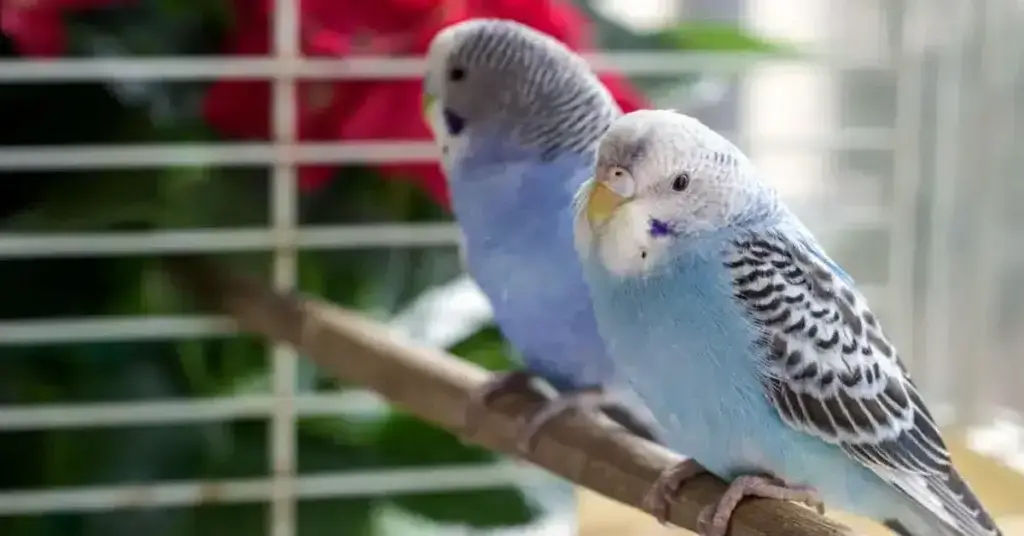
Keeping your budgie free from parasites is vital. Parasites can make them very sick. Simple steps can keep your pet safe and healthy.
1. Clean Living Environment
A clean living environment is essential. Ensure the cage is cleaned regularly, and remove droppings and uneaten food daily.
- Disinfect the cage weekly.
- Use bird-safe cleaning products.
- Replace bedding and toys often.
Keep the area around the cage tidy. Avoid clutter where pests can hide. Ensure proper ventilation to prevent mold and mildew.
2. Regular Health Checks
Regular health checks are crucial. Take your budgie to the vet for routine check-ups. Early detection of parasites can save your bird’s life.
| Health Check Frequency | Action |
|---|---|
| Monthly | Inspect feathers for mites or lice. |
| Every 6 Months | Full veterinary check-up. |
Look for signs of illness like itching or feather loss. If you notice any signs, visit the vet immediately.
How To Treat Budgies for Fleas Parasites
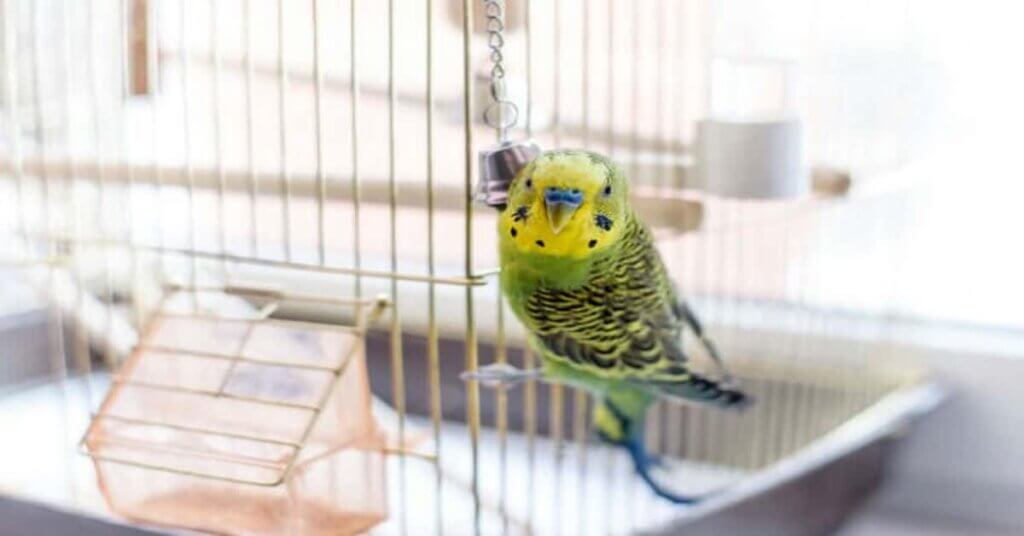
Budgies can get fleas just like other pets. Fleas cause discomfort and health issues. If your budgie has fleas, treating the infestation quickly is crucial. Below are some safe methods and advice on consulting a vet.
Safe Treatments
Using safe treatments protects your budgie from harm. Here are some options:
- Bird-safe sprays: These sprays kill fleas without hurting your budgie.
- Natural remedies: Some natural oils and herbs repel fleas.
- Cleaning the cage: Regularly clean and disinfect the cage to remove fleas.
Avoid using dog or cat flea treatments on budgies. These products can be toxic to birds. Always read the label before using any product.
Consulting A Vet
Sometimes, home treatments may not be enough. In these cases, consulting a vet is wise. A vet can:
- Diagnose the infestation: Confirm if fleas are the real issue.
- Recommend safe treatments: Suggest the best products for your budgie.
- Provide follow-up care: Ensure the infestation is fully treated.
Regular vet check-ups help keep your budgie healthy. Always consult a vet if unsure about treatments.
Frequently Asked Questions
How Do You Know If Birds Have Fleas?
Can Humans Get Fleas From Birds?
Can Parakeets Get Fleas In The House?
Wrap Up
Budgies rarely get fleas, but it’s crucial to maintain their health and cleanliness. Regular cage cleaning and vet check-ups can prevent issues. Ensure a balanced diet to boost their immunity.
By being attentive, you can keep your budgie happy and flea-free. Your feathered friend deserves the best care possible.
